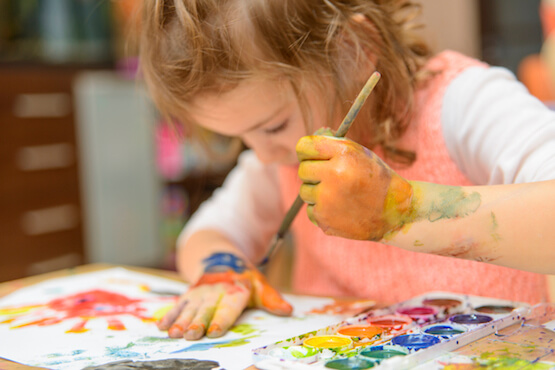Sometimes, you may feel that talking nicely to your child or preteen is not enough. And neither is strict discipline or punishment. And the middle ground of ‘talking kindly but firmly’ also produces no results. We’ve all been there as parents; we can feel like ‘nothing works.’ We can also feel guilty that it was something we did to trigger these behaviours.
While I won’t go so far as to say parents can’t make mistakes, I would say that you are likely not alone in what you are experiencing with your child or teen. Extreme and unreasonable fears, emotional outbursts, physically harmful actions, persistent retreats into loneliness, refusal to speak or respond in social situations; it can all be helped.
Child play therapy for North Vancouver and West Vancouver residents can be resourceful for a variety of situations – not just the so-called ‘extreme’ circumstances we see with ‘very troubled’ youth.
And I get it. You may have already been to the school counsellor. You’ve read blogs and forums. You may have already asked the doctor about mental development problems. And you may have exhausted the support you’ve had from government offerings or social services.
Or maybe your child is ‘just on the edge’ and doesn’t qualify for these programs. Yet you know they are needed to get your family’s relationships back on track.
That’s where I come in as a North Shore play therapist.
Investing in child play therapy can be well worth it when you consider the quality of life impact it can have for both you and your child.
Get relief knowing your child’s symptoms are treatable with play therapy, a communication method they can relate with
The good news is that, most of the time, with continued effort, problem behaviours can improve and, eventually, be eliminated. Just like doctors can treat symptoms to relieve physical illness and, often, cure them, the same is true of play therapy for kids.
Curious about symptoms that can indicate your child needs play therapy?
Click here to learn more.
Therapeutic sessions are only successful when the client is motivated to participate. This is easier said than done with children.
As we know, kids can often play much better than they can articulate their feelings. Let’s face it: their vocabulary alone is not fully developed yet. And neither is their awareness of the world around them.
That’s why kids are kids, and why we don’t expect them to take on adult responsibilities. So why ask them to participate in child therapy methods that don’t match their natural ‘style’ of thinking and acting?
And so, combining play and therapy can create a win-win situation when play actions can be understood by a skilled professional like a child play therapist. And yes, we actually play in play therapy!
Play therapists can gather what a child could be feeling emotionally, or thinking subconsciously, by the way they crash cars, set up furniture in a dollhouse, or create make-believe conversations between action figures. It may sound like ‘hocus-pocus,’ but it’s not. It’s been well-researched, and used by professionals internationally since the beginning of the 1900s.
Play therapy is its own specialty when becoming qualified as a counsellor. It’s important to know the difference between how adults ‘think’ and the way kids do. With youth, it’s not always as obvious as ‘just saying it.’ I have been fully qualified to help kids express themselves through play. I am able to understand what they are trying to say on many levels, and for many specific circumstances.
Go the distance for your child by being involved in their therapy plan
We will meet for 15 minutes after each session to discuss your child’s progress and what you could do to help them at home.
When you sign up for child play therapy services in North Vancouver with me, I not only have private sessions with your child to be able to assess and treat their emotional and mental state. I also help train you to be able to do the same in your home environment.
This is important because the way your kids behave with me in my office – which is tailored for therapeutic sessions – can be different than how they behave with you in ‘real life.’ Plus, the constant creation of neural pathways to develop new habits needs to happen daily to take hold.
Parent involvement is thus critical in the success of child play therapy services. And, if you need more support in this area, we can discuss more in-depth parent counselling support, filial play therapy or family play therapy.
How many sessions does it take for play therapy to be effective?
I recommend children see me weekly, for 45 minute sessions, over approximately 20 weeks for best results. However, positive changes surrounding specific symptoms could be observable even after the first few sessions. Sometimes, fewer or more sessions are needed. It all depends on the difficulty of the situation, the individual’s character and any new challenges the client may face as time goes on.
Please also keep in mind that predictability and consistency are essential when re-training the brain, which is what all therapy aims to do.
